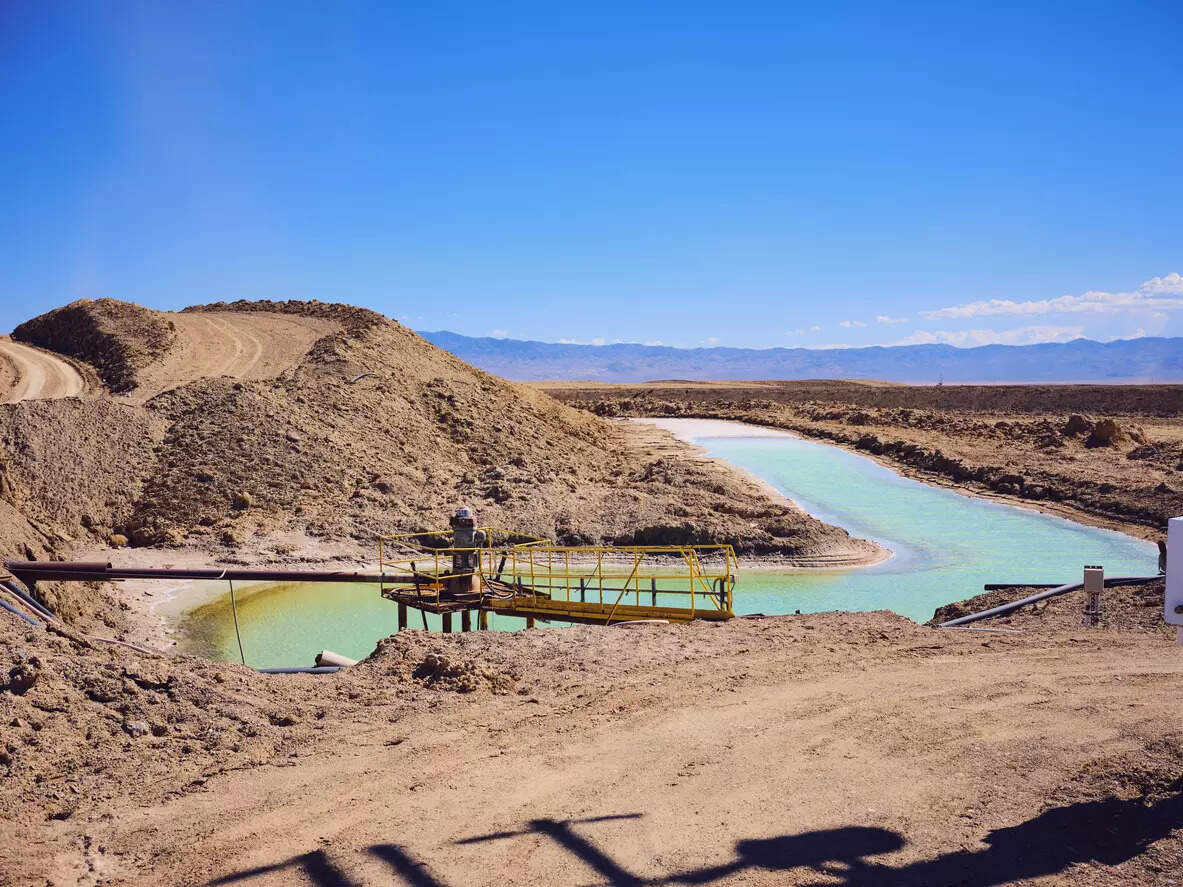
Piedmont Lithium on Tuesday drew skepticism and anger at a key meeting with local North Carolina officials about its plans for a lithium mine that would supply the electric vehicle battery metal to Tesla.
The open-pit mine, if approved, would be one of the few lithium-producing sites in the United States, but there has been little progress in gaining approvals for the project, which the company has been trying to get up and running for more than two years.
At the public meeting with the Gaston County Board of Commissioners, which controls zoning changes, officials were irked that Piedmont CEO Keith Phillips did not attend and expressed concern that the mine could cause wells in the area, which many residents rely on, to run dry.
Piedmont said it does not expect “widespread drying up of wells,” although it admitted at least 10 of its neighbors could run out of water.
“I don’t want to see any of our citizens ever be put in that position,” Commissioner Allen Fraley said at the meeting, which was webcast. “How would you like to wake up one morning and your well’s dry?”
Piedmont said it would be open to helping its neighbors in those situations dig deeper wells or connect to municipal water supplies.
Piedmont said Phillips did not attend because its technical experts did instead. The company brought staff focused on environmental and legal issues, as well as experts on blasting, water and other technical areas.
The project, which has divided the county of roughly 230,000 just east of Charlotte, underscores broader tension in the U.S. as those who are resistant to living near a mine clash with those who believe the United States must lessen its dependence on China for lithium and other strategic minerals to cope with climate change.
Piedmont first signed a deal to supply lithium to Tesla in 2021 from North Carolina. That deal was paused before being renegotiated in January after Piedmont found a temporary source for the metal from a Quebec lithium mine in which it has an investment.
Piedmont will need the board to approve a zoning variance before it can build the project, which would include an open-air pit more than 500 feet (152 m) deep and production facilities.
The board has said it will not consider such a change until the company receives a state mining permit. Piedmont has been seeking a permit for nearly two years and in May asked for a third extension to file the necessary paperwork.
Piedmont officials said they were open to financially assisting homeowners not able to sell their land because of the mine project and that the company would aim to not discharge processed water into local waterways.
In response to concerns from commissioners that the company could be sold amid rampant global demand for lithium, they said that steps had been taken to “make it difficult” for the company to be sold, without elaborating.
They added that Piedmont was also open to funding a surety bond for mine reclamation “much larger” than the USD 1 million required by state regulations in case the company failed, though they did not provide a specific amount.
Multiple residents spoke against the proposed mine. None spoke for it. Some said Piedmont, which moved its headquarters to Gaston County in 2021 from Australia, has done little to share project details with them.
“We’ve not heard from Piedmont Lithium in over two years,” said Warren Snowdon, whose land shares an 8,000-foot-border with the proposed site. “So I don’t know if they don’t care and I don’t know if they’re concerned about us.”

